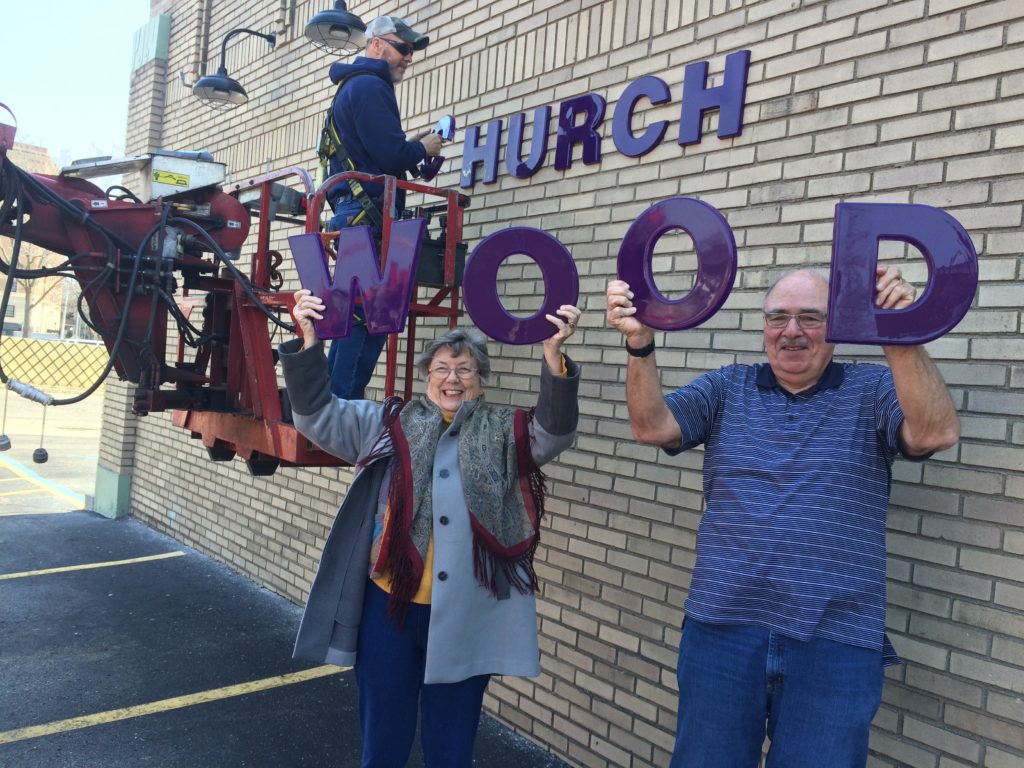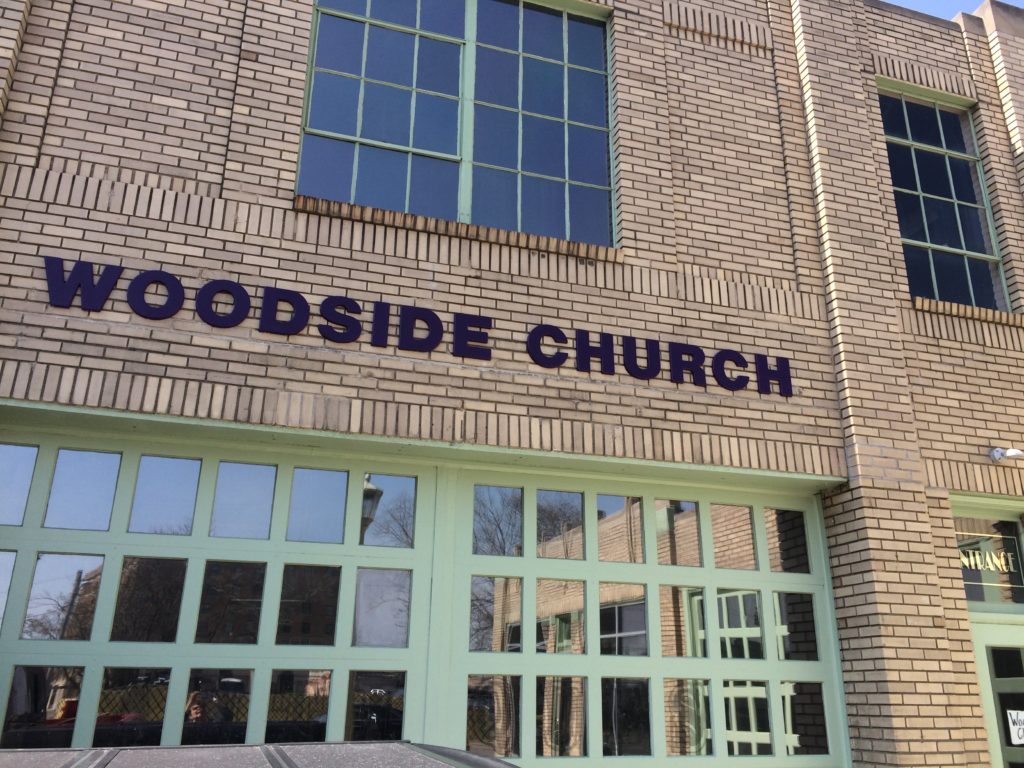
Jeff Richardson of Signs by Crannie installs the new Woodside Church sign at the corner of Second and Garland, as church board member Karen Eaton and treasurer Joe Eufinger are prepared to help (Photo by Jan Worth-Nelson)
By Jan Worth-Nelson
The beige brick building at the corner of Second Avenue and Garland Street in Flint came closer Thursday to its transformation from an antiques store and deli to Woodside Church.
Woodside Pastor Deborah Conrad, along with Woodside treasurer Joe Eufinger and board member Karen Eaton, supervised as Jeff Richardson from Signs by Crannie worked on a cherry picker at the wall and the building’s new identity materialized from end to beginning –first “Church” and then “Woodside”– on both the front and back sides of the structure.
“This is a historic moment,” a smiling Pastor Deborah Conrad said as she watched the letters go up one by one.
In 2017 the Woodside congregation sold its mid-century modern building on East Court Street in the College Cultural neighborhood for $610,000 to Mott Community College, and has been meeting at the Court Street Village Nonprofit headquarters on East Street while it searched for its new place.
The downtown building was formerly owned by Nick Hoffman and housed Carriage Town Antiques and Hoffman’s Deli. Hoffman closed the antiques store and the deli has reopened downtown at the former Lunch Studio.
According to Conrad, the church’s new home, built in 1930, “has been mostly about cars: it first housed the Goodrich Silvertown Store, then later Goodrich Tire, then Sears Tire and Auto, and other auto care-related businesses.”
Stained glass windows from the last three buildings occupied by the Woodside congregation eventually will be installed into the building, and neon signs left from the previous businesses at the Garland Street corner also will be incorporated into the structure, Conrad said.
She said the congregation hopes inside renovation, contracted to Siwek Construction of Flint, will be done in time for services to be held in the new building by June.
The Garland Street location is the congregation’s fourth of what was originally known as the First Baptist Church of Flint. As detailed in a November, 2016 story in East Village Magazine, the first official building was at the corner of First Avenue and Lyon Street; the second, at the corner of Beach and Second streets–both quite close to the new digs.
After the 1952 move to the E. Court Street location, the congregation opted to join the Congregational Christian Church denomination, and in 1961 changed its name to Woodside Church. It is a member of two denominations — the United Church of Christ and the American Baptist Church and still bears the legal name of “First Baptist Church.”
Woodside was a stop on the Underground Railroad during the Civil War; as an advocate for fair housing, civil rights, and an end to Jim Crow in the 1950s. In recent years the congregation sometimes has “ruffled feathers,” Conrad said in 2016, “over its welcome of people who are gay, lesbian, bisexual and transgender” and acting as “a catalyst for examination of policies of mass incarceration, poverty and water rights.”
According to Woodside leaders, the church has about 120 members and averages about 70 at its Sunday services–too few for the large E. Court Street location, which had been designed in boom times for a congregation of up to 600.

Finished sign on the east side of the building (Photo by Jan Worth-Nelson)
EVM Editor Jan Worth-Nelson can be reached at janworth1118@gmail.com.


You must be logged in to post a comment.